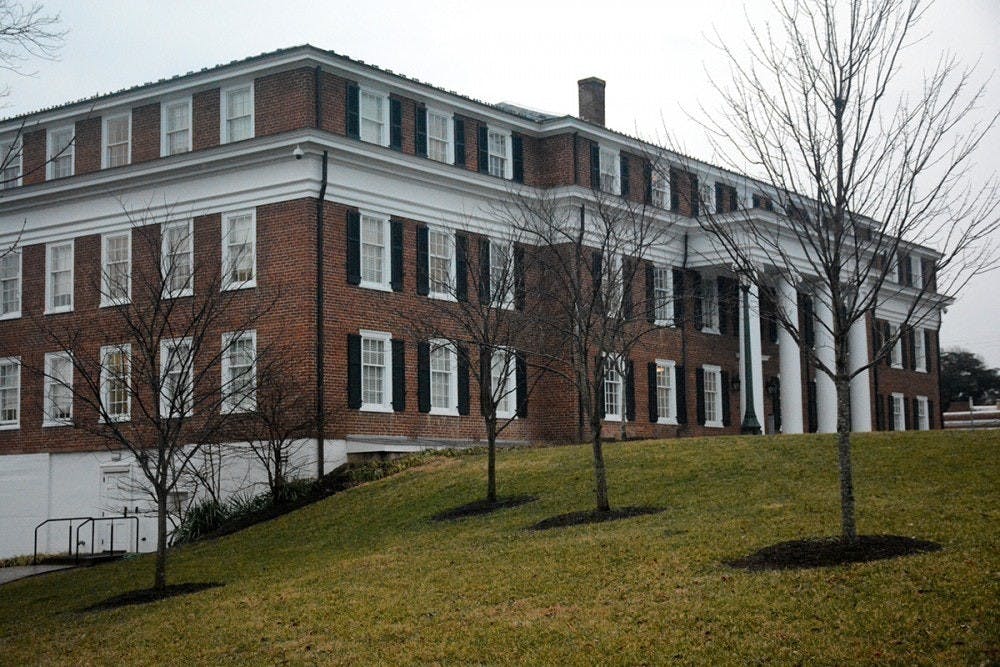One year ago, U.Va. Survivors released a list of demands addressed to University administration and the University’s Office of Equal Opportunity and Civil Rights focused on increasing University accountability, education and training surrounding sexual assault awareness and prevention on Grounds. Today, U.Va. Survivors is still calling on the University to meet these unmet demands, having noted limited progress over the past 12 months, according to student advocates on Grounds.
“Survivors will continue to drop out of classes, suffer mentally and physically and watch their perpetrators face no consequences,” the Instagram post, dated April 11, said. “Nothing is ‘Good and Great’ about the University fostering a culture of violence.”
Since 2019, U.Va. Survivors has strived to create an inclusive environment for all survivors, particularly survivors of color whose voices have traditionally been silenced. The group recently launched a website that includes educational and survivor support resources.
“We aim to cultivate a life-giving, inclusive space for survivors as we work to build a University where organizations like this no longer need to exist,” the website reads. “We operate through the knowledge that oppressive systems, like capitalism and patriarchy, will continue to cause interpersonal violence until they are abolished.”
The website details the University’s history of sexual violence, explains consent and the types of sexual and interpersonal violence, provides resources to those looking to be allies, points survivors towards reporting tools, as well as identity-based and self-help resources.
The group’s original demands — which were released in April 2020 — garnered attention over the summer when an anonymous Twitter account, @ExposedUVA, began tweeting about allegations of sexual misconduct on Grounds. The account encouraged survivors to share their stories along with the names of their alleged abusers. It has since been deleted.
The demands received over 1,800 signatures following their release.
Despite the financial challenges posed to the University by the pandemic, the demands call for the University to allocate more resources to sexual assault prevention and support for survivors.
“The current allocation of resources towards sexual and intimate-partner violence education, prevention and recovery resources is insufficient,” the demands said. “University administration is failing to meet their goals and neglecting the majority of their student body.”
In an email to The Cavalier Daily, a representative from U.Va. Survivors expressed frustration with the University’s lack of response to the list of demands.
“We very much doubt that they will take concrete actions in the near future, but we hope that these demands will be met,” the representative said. “We don’t need anymore panels or futile discussions with administrators about it since we laid out our demands in detail.”
Emily Sanders, associate vice president for the University's Office for Equal Opportunity and Civil Rights, met with U.Va. Survivors last March after receiving the demands, according to a statement to The Cavalier Daily from deputy University spokesperson Wes Hester. Sanders plans to meet with the group again before the end of the school year, Hester added.
The 2019 AAU Campus Climate Report suggests sexual misconduct remains a prevalent issue on Grounds. Thirty percent of respondents said “yes” when asked “since you have been a student at U.Va. has a friend or close acquaintance also from U.Va told you about an experience that happened to them that you thought might be a form of sexual misconduct?” The survey also shows that 19.1 percent of first-year students have been victims of sexual assault or misconduct, along with 13.9 percent of second-years, 11 percent of second years and 9.9 percent of fourth years.
According to University policy, “the University conducts ongoing prevention, awareness and training programs for employees and students to facilitate the goals of this policy.” These include training programs on Title IX and sexual assault policy, awareness programs, bystander intervention programs, risk reduction education and primary prevention programs, among others. The University’s specific annual programs include its Alcohol Wise and Sexual Education Module, Domestic Violence Awareness Month, Halloween Safety, National Hazing Week and Substance Abuse Prevention Week, among others.
The post also reiterated unmet demands regarding Title IX — which include moving the Title IX office from Rugby Road and increasing education on the reporting process, new regulations and anonymous reporting. The demands said the Title IX office’s current location does not provide a safe place to report sexual assault due to its proximity to fraternity houses, where sexual assaults historically have occurred, and that the University needs to provide more accessible ways to report assault, violence and harassment.
The University recently revised its Title IX Policy and Procedures based on new regulatory requirements released by the U.S. Department of Education in May 2020, and the new regulations went into effect in August 2020. Passed in 1972, Title IX is a federal civil rights law that protects individuals from discrimination based on sex in education programs or activities that receive federal financial assistance — this includes sexual harrassment, interpersonal violence and sexual assault.
The definition of sexual harassment recently changed so fewer incidents are covered under Title IX. Cases that occur outside the United States, in off-campus apartments or at events that are not part of the University’s “program or activity” are no longer covered by Title IX.
Schools are also now required to investigate cases in a “manner that is not deliberately indifferent” rather than the previous 60-day timeframe, meaning that investigations may take longer. Schools can choose which employees are mandatory reporters, whereas before most employees were mandatory reporters. Schools can also determine whether to use a “preponderance of evidence” or “clear and convincing evidence” as the standard in cases involving sexual harassment.
“Following the release of the new regulations, the University’s Title IX Office, as part of the broader Office for Equal Opportunity and Civil Rights, launched a thorough process of evaluating the regulations and seeking feedback and input from the community,” Hester said.
This process included a new website with information about the new requirements, four public listening sessions. The office also evaluated 150 submissions through an online feedback form, Hester said.
The new Title IX reporting process introduces two sets of procedures — the “Grievance Process” and other general “Procedures” — to respond to reports and formal complaints. The Grievance Process describes procedures for responding to reports of Title IX violations while the Procedures section outlines procedures for responding to reports of sexual or gender-based prohibited conduct.
Other nationwide changes made to Title IX policy under the Trump administration include live hearings and cross-examination of witnesses in sexual harassment cases, though the Biden administration has started the process of undoing the previous administration’s rules.
“In addition to making significant policy and procedure and staffing changes since 2015, U.Va. has continued to place a high priority on education, training and prevention in the Title IX area,” Hester said.
The April post by U.Va. Survivors reiterated the group’s demands that the University commit to stopping sexual and interpersonal violence, fully fund mental and physical health resources, address its history of sexual and interpersonal violence and complete an external review of the Title IX Office.
The post also notes the University’s shortcomings in education and training students, faculty and staff, asserting that the University has not made an effort to provide trauma-informed care and education, consent, sex and trauma education or training for student leaders and reports on how to handle situations of misconduct.
All incoming first-year and transfer students are required to complete an online Title IX training, as well as alcohol awareness training. Students are required to retake a refresher training every two years.
Graduate students are also offered separate Title IX training to reflect their own experience. Student employees are required to take additional Title IX training designed for faculty and staff, and student athletes and athletic department staff also undergo additional Title IX training per NCAA policy.
Hester directed students to the University’s Resource and Reporting Guide, which describes in detail the support measures available to students through the University. These measures — which may be temporary or permanent — include no-contact directives, residence notifications, academic modifications and more.
The University also offers mental health resources for students through Counseling and Psychological Services, as well as the Maxine Platzer Lynn’s Women’s Center.
CAPS serves as the primary mental health clinic for University students and includes licensed social workers, counselors, psychologists, nurse practitioners psychiatrists, while the Women’s Center houses three full-time trauma counselors, a care manager who helps students access resources and a resident in counseling who specializes in cultural, gender, racial and sexual identity in mental health.
Some student leaders have called these resources inadequate, however, citing a lack of spaces dedicated solely to supporting the survivor community and an absence of administrative support.
In an email to The Cavalier Daily, an executive board member of Culture of Respect Educators — another organization dedicated to sexual assault and gender-based violence prevention — described the inclusive atmosphere they would like to see at the University in the future.
“The first preliminary step we would like taken by the University is the creation of neutral spaces for all survivors of all identities,” the executive team said. “The current policy often forces persons of nonconforming identities to seek support from the Women’s Center or other gendered resources.”
The representative from U.Va. Survivors also welcomed any concerned students to join their efforts.
“To survivors at U.Va. we want to say that we are here for them even though the University often is not,” said the representative. “If any survivors are looking for a sense of community, they can join U.Va. Survivors and follow us on Instagram and attend our interest meeting on April 28 at 7 p.m.”
Reports of sexual assault or interpersonal violence can be reported to the University’s Title IX Coordinator, a deputy Title IX Coordinator or using the University’s Just Report It website.







